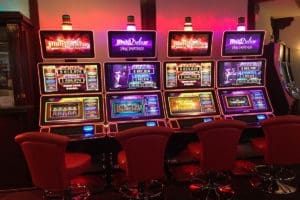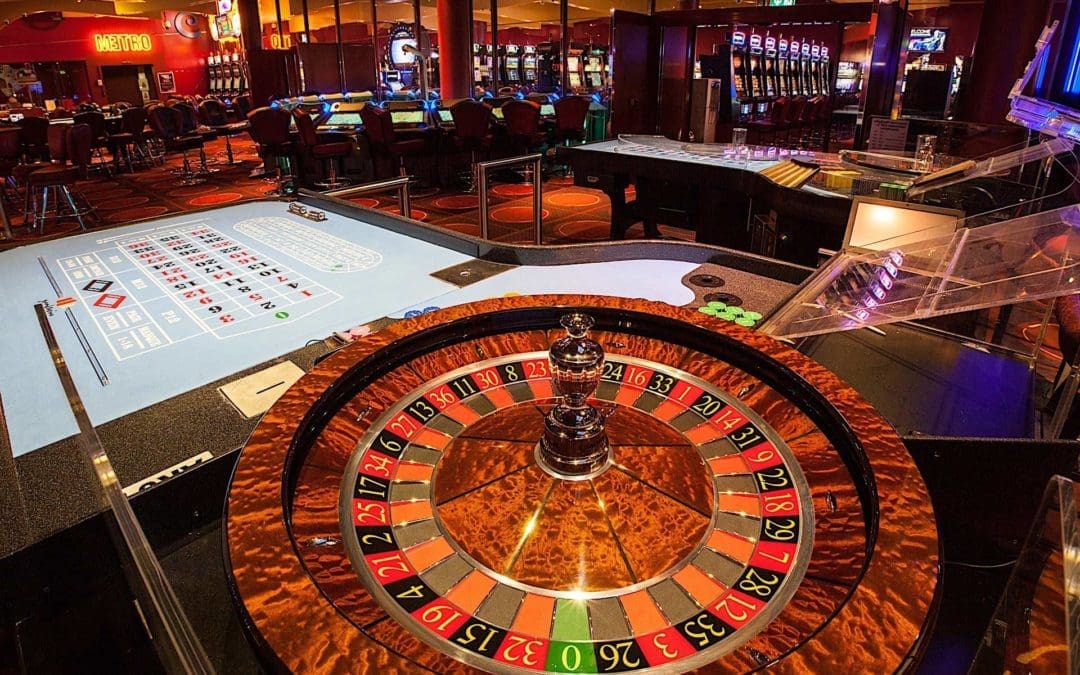“The house advantage” can be a very common expression among the reports that are published on casinos and gambling.
In general, they are explanations given by the editors about the casinos and their advantages over the players, their writings usually talk about how blackjack games have a very low advantage compared to other games, or they also give explanations of how the slots They have minimal advantages for the house.
The differences between the games are always being compared; it is a way of measuring the overall percentage of the house over the players.
But when there are differences, the explanations mentioned would be something like that at the table of the dice the advantage of the House is only 2%, or that in the other table games the advantages are higher with 16%, these are some examples of how the house advantage works in a real casino.
Some important background of probabilities
To get to understand how the house advantage works in casino games, it is better to know all the basics and the odds it represents for each player.
In theory, these are mathematical calculations, calculations that measure the real probabilities of the results in an event whatever it may be.
For example, to measure the weather, a meteorologist will do his mathematical calculations and say that there is 50% that there is rain on a given day; there he is making a calculation that gives him a probable result.
These examples are understood by most people, because daily without realizing they are making calculations for each event based on probabilistic percentages. With basic knowledge of elementary mathematics, conclusions can be drawn from fractional calculations.
So, taking these examples, if you want to determine how likely it is that a result will occur; all the possibilities are simply listed and divided by the total number of possibilities. From there, the percentage of probability that such an event will happen will be taken.
The importance of the house advantage
Each game has its chances of winning or losing if you win there is a payment for the player, but if you lose, you will automatically lose your investment.
It will always be the same amount of your original bet, if you bet on 100% roulette and He wins, then he will win 100%. If he loses, he will be losing the same amount, that is, 100%. This amount can be money too.
In some blackjack bets, the winnings are very high, and usually, the player has the option to surrender. If this happens, he will only lose half his bet. This example is not very clear to explain how the house has the advantage.
There are other ways to pay a bet; one of them is using odds
For example, a bet is fair and can be worth between 1 and 1. You can also give a bet worth 5 to 1. Then, if you win, the player would get 5 units, but if he loses he would only have 1 unit.
The odds on the dice using the previous example – when you have a bet of 5 to 1-, in that case, the house would have no advantage, what happens is according to the player’s odds, he will win as much money as he will lose.
When other amounts are used to bet, such as if the payment is reduced by throwing a 6 to 4 to 1. Here, in this case, the statistics show more clearly what the chances of losing in the bet are.
A clear example is that of the dice rolls, for every 6 rolls you will lose 5 times, that is, if in each of the rolls you bet $100, you will only have won $400, it means that in the other 5 rolls you lost $500 in total.
In short, doing all the calculations, he only lost $100. According to all calculations of his gross losses, he had a loss of 16.67% for each of the bets. It would be the advantage of the house.
In the long term, casinos will always have the advantage, and that is why they have remained in the business for a long time, although many of their players leave with a good profit. But in the long term, the profits of the casinos are a phenomenon it grows more every day. The only advantage that players have with the odds is in the short term.
The truth of all these games of chance is that the casinos play long term, unlike the players, who do it in the short term.
The advantage of the house influences the amount the player loses, although they also influence the number of times the bet per hour and also the amount.
When the amounts are equal then the house will have the lowest advantage. There are other conditions that could affect the house advantage, a clear example of this occurs in the game of blackjack. There you can start a discussion that involves several casino games.
In blackjack the advantage is only 0.5% and 1%, it will depend on each situation, and in this case, the conditions should be optimal. An average player will have a margin of error of 2%.
In the case of craps, different bets are given and each one of them is different in the house, for the players to keep the basic bets, it is an advantage over the house of n1.45%, it is low but advantage at last.
But the most exciting thing about board games – in this case, the dice – is when the house has the advantage.
The roulettes have two versions and depending on which one is playing the advantage of the house will be determined. The double zero version is the most prevalent especially in the United States and has a house advantage of 5.26%, but when it is eliminated a zero then the advantage is reduced by 2.70%.
The other version is simply zero, but there are no data on the advantages of the house in this version.
The other case is the online pokies machines, in which the advantage of the house will depend on the PAR sheet of the game, this due to the program that the slot machines have in the systems to obtain the combinations of the symbols in random payments and the house advantage is determined.
Immersing oneself in the nuanced realm of casino economics necessitates a deeper understanding of the ‘house advantage’—a concept steeped in the mathematical disciplines of probability and statistics that underpin the gambling universe. It’s this very cornerstone that ensures the casino’s triumphant dance with fortune, a meticulously crafted edge woven into the tapestry of gaming excitement.
Deciphering the House Edge
At the heart of every casino game lies the house edge—a silent sentinel of profitability. It’s not the harbinger of deceit but the keystone of a casino’s livelihood. Consider the slot machines, each is a trove with a ‘Return to Player’ (RTP) rate—a theoretical beacon indicating the potential treasure that might spill forth to players over an enduring saga of spins. The flip side of this RTP is the house edge, the unseen slice that the casino claims as its tribute.
Strategizing One’s Way Through Games
The player’s arsenal, stocked with strategies, can wield considerable influence over the house edge. In the hallowed halls where blackjack reigns, the deviation from a calculated strategy can swell the house’s edge, while adherence to the sage paths of play keeps the advantage at bay. Here, the player’s insight sways the balance of power.
Betting Systems: A Gambler’s Gambit
Some intrepid souls navigate the gambling seas with the compasses of the Martingale or Fibonacci sequence, vying to outsmart the house advantage. Despite occasional victories, these systems eventually succumb to the relentless tides of probability—the house’s advantage, unyielding in its mathematical fortress.
The Lure of Promotions and Comps
Casinos, in their quest for patrons, extend the olive branch of promotions and comps, weaving them into the gaming experience. These gestures, while not altering the bedrock odds, adorn the player’s journey, offering a salve to the wounds inflicted by losses and, in doing so, tempering the effective house edge.
Variance: The Winds of Fortune
Variance, that capricious wind, can fill the sails of a gambler’s fortune or buffet them into the doldrums. The house edge predicts a long-term ebbing of funds, but variance allows for jubilant tides of gain, albeit accompanied by the risk of more precipitous falls.
Navigating the Modern Waters of Gaming
The digital revolution has recalibrated the gaming landscape, furnishing an online arena where the house advantage is both varied and accessible. The future is a kaleidoscope of choices, with each twist revealing new edges for different tastes.
Demanding Clarity in the Casino Labyrinth
The modern gambler’s quest for transparency has not gone unheard. Watchdogs of the gaming realm mandate that the veil over the house edge and RTP be lifted, empowering players to make enlightened forays into the gambling fray.
In summing up this intricate tableau, the “house advantage” stands as the casino’s lodestar, its guiding principle. While it presages the house’s enduring prosperity, it also serves as the yardstick for the astute gambler. In the grand casino narrative, understanding the house edge is not merely about acknowledging the odds—it’s about engaging with the very essence of the gamble, armed with knowledge for a more gratifying play.


